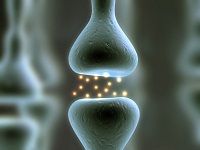New Carbidopa-Levodopa Formulation Improves Motor Control in Patients with Parkinson's Disease
Patients with advanced Parkinson's disease treated with an investigational extended-release carbidopa-levodopa formulation experienced greater reductions in "off" time and greater improvement in dyskinesia-free "on" time compared with similar patients treated with carbidopa-levodopa plus entacapone.

Levodopa is currently the standard of care for the treatment of advanced Parkinson’s disease (PD). Maintaining therapeutic levels of levodopa has been shown to improve symptom control and minimize “off” time (periods of decreased mobility). However, treatment with levodopa is also associated with nausea and vomiting. For this reason, the medication is often given in combination with carbidopa, which can help reduce the occurrence and severity of these side effects while boosting efficacy.
Frank Perez, PhD, associate director of Medical Science Liaisons at Impax Laboratories, presented findings on IPX066, a carbidopa-levodopa extended release formulation, as part of a poster session at the 2013 Annual Meeting of the American Neurological Association.
One current treatment to reduce “off” time in Parkinson’s (ie, periods during the day when medication effects wear off and symptoms return) is sustained release carbidopa-levodopa plus entacapone (CLE). The investigational drug IPX066 is an extended release form of carbidopa-levodopa. It has been formulated to maintain a longer duration of levodopa action (about 5-6 hours after a single dose). Researchers in the present study compared the efficacy and side effect profile of IPX066 to CLE in patients with advanced PD.
All subjects had been stable on a CLE regimen for at least four weeks prior to the study. Subjects first took IPX066 for six weeks (open label). Researchers randomized two double-blinded groups. One group received IPX066 for two weeks then took CLE for two weeks; the second group reversed this order. Between the blind two-week periods, subjects took IPX066 open label for one week. Daily dosing frequency was 3.5 doses/day with IPX066 compared to 5.0 doses/day with CLE.
Eighty-four patients completed the study. Patients experienced a lower percentage of “off” time while on IPX066 compared to CLE (24 percent to 32 percent, respectively; p<0.0001) as measured by patient diaries. The average improvement in “off” time was 1.4 hours in IPX066 compared to CLE. The mean “on” time without troublesome dyskinesia was greater in IPX066, at 11.4 hours compared to 10.0 hours for CLE.
Patients on IPX066 also showed a significant improvement in their Unified Parkinson’s Disease Rating Scale during their “on” time (29.3 versus 31.7 in CLE). Forty-eight percent of patients preferred IPX066, compared to 33 percent of patients who preferred CLE.
Adverse effects were slightly more common in IPX066, though the drug was generally well tolerated. Twenty percent of patients experienced at least one adverse effect with IPX066 compared to nearly fourteen percent for CLE. Adverse effects that occurred in two percent or more of subjects during the cross-over period were dyskinesia (4.5%), confusion (3.4%), and insomnia (3.4%) for IPX066, and fall (2.3%) for CLE. Two patients withdrew from the study due to adverse events.
Thus, treatment with IPX066 may help improve motor control in advanced PD patients who have previously been treated with CLE. The research group also recently published a related study demonstrating efficacy and safety of IPX066 in early PD.
Perez explained that IPX066 is currently undergoing FDA approval. The maker of the drug is currently in the process of resubmitting an application, but is hopeful the drug will be clinically available in the near future.
This study was sponsored by Impax Laboratories.